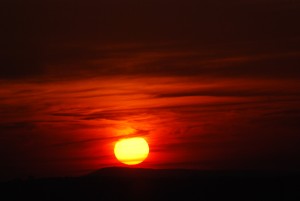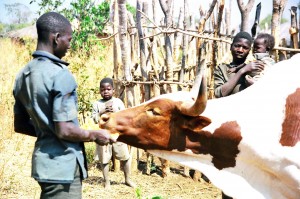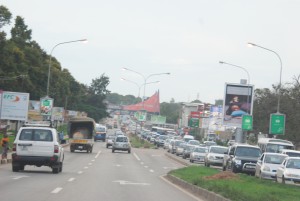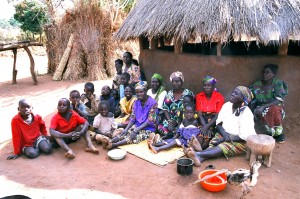by
Mwizenge S. Tembo, Ph. D.
Professor of Sociology
It was Malcolm Gladwell in his book: “The Tipping Point” who said at the beginning of the internet era in the early 1990s, emails were not only very few, but they were very useful for only quickly communicating very important meaningful information. The tipping point when email turned from being valuable to a new sense and even a menace is when its volume increased. Today one individual can generate millions if not billions of spam email at a click of a button clogging up our inboxes with meaningless rubbish or trash. It is for this reason that among thousands of emails I receive, besides work and other formal official email correspondence, I can count may be up to five the number of emails that have had a profound impact on my thinking and world view during the last ten years. These emails constitute a major “event” because I become very sharply aware of my own thinking before and after reading that particular mail.
An Email from Zambia
So it was that on 3 October 2014 at 10.00 hours Eastern American time, I risked clicking open an email from a stranger. I read it for the first few seconds with my clicker hovering above the delete button. The excerpt from the email said:
“…….The first time I came across your information was a few months ago when I was looking up some Tumbuka expressions and I found your “Hunger for Culture” web page. Your Adada Nati Niwele and Amama Nati Niwele poems were very inspirational to me. I was impressed, at first I thought you were Malawian, but as I read more I discovered you are Zambian, I was delighted and very proud. I hold you in very high esteem and I’m humbled to be able to communicate with you.
I am aspiring to write in Tumbuka. My parents hail from Lundazi, it’s a long time since I have been there. I barely speak Tumbuka, but I understand, and can read and write fluently……..”
Releasing the Delete Button
I instantly released my delete button. I had written 2 Tumbuka mother tongue poems on my web page with no translation into English. I can write, do, and publish material in an innovative way and responsibly on my web page without anyone breathing down my neck telling me what I can and can’t think and express. So many furious thoughts began steaming in my mind. Who is this Marita Banda? I wrote the 2 poems many years back when I was experiencing my own normal ups and downs of marriage problems. The 2 poems reflect what married Tumbuka men and women traditionally contemplate and wrestle with during normal marital conflagrations, problems, and sometimes upheavals.
One very short portion of the long Tumbuka poem I wrote that Marita had read is reproduced with English translation for the first time. The poem is from the married woman’s perspective.
Adada nati niwele
(Father I want to come home)
Mwanalume wanisuzgha
(The man is troubling me)
Ndeke zinai baliwiska
(Four planes were taken down)
Ndine mwanakazi yayi
(I am not a woman)
Ine bana nkhulela
(I am raising children)
Ndine mwanakazi yayi
(I am not a woman)
Nabapa bana bankhondi
(I have given him five children)
Ndine mwanakazi yayi
(I am not a woman)
Mutima bukubin’gha nkhanira
(My heart aches very much)
Adada nati niwele
(Father I want to come home)
Niza mlima kukaya
(I will come home and farm)
Am I a Malawian?
Marita Banda at first thought I was Malawian? That’s the legacy of Africans and Zambians being victims of British and European colonialism in 1884 during which the continent was divided into 54 artificial countries on a map. The result of which is that of the one million Tumbuka people, half of them are in Eastern Zambia in Lundazi and the other half are in Northern Malawi. Some of the Lozi people in Western Province in Zambia are in Zambia, some in Botswana and others are in Namibia. Some of the Bemba are in Northern Province and others in the Democratic Republic of the Congo. Some of the Chewa people are in Eastern Zambia, Malawi and Mozambique.
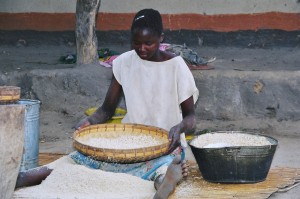
Girl using Chihengo or winning pounded maize in a village. Compose a poem about this in a Zambian language.
Marita Banda was aspiring to write in Tumbuka and did not know her native language very well? All of this intrigued me so much that some of my long held negative assumptions about contemporary Zambian writers were beginning to be challenged. Her Tumbuka poem was forty lines long but only the first 7 lines are reproduced here with English translation for the first time. The full poem is at the bottom of the article.
Gombeza
(Blanket)
Gombeza ilo mukuona na nika pa nthambo, ndane
(That blanket I have hung on the cothes line is mine)
Lene lila liswesi na babulaula bati bii mu mphepete makora ghene, ndane
(The red one with butterflies along the edge, is mine)
Ndipo, lu saba kuomila cha
(In fact it does not take long to dry)
Mungaleka kulisezga apo nkhulibika namweneco, ku chipinda
(Do not move it, I the owner store it in the bedroom)
Kwambula ku nimanyiska
(Without telling me)
Gombeza lane nkhudikha para kwiza ka mphepo
(My blanket I cover myself with when it gets cold)
Para nadikha mbwenu kati fuu… Makora ghene
(When I am under it, I feel so warm and so good)
New Zambian Poetry Genre
This is an excerpt of my response to Marita’s email:
“Your e-mail was sweet music to my ears. Your poem made me laugh especially about “gombeza na viskuli”. This brought vivid memories to my soul about my childhood. That’s why I find Tumbuka so profound because it brings out the deepest philosophical thoughts and memories from kukaya when I was growing up; my grandparents, my father and mother, cousins, uncles, aunts, food including nchunga ziswesi or eating red delicious kidney beans with nshima. “Gombeza liswesi” I can see the vivid colors of the blanket and images of “kwanika pa nthambo”. i.e to hang on the clothes line.
…….I think sometimes English is very restricting and narrow. I think what you have written is not just a poem in the English Western sense, but I think is more a poem of “Kuteketela” in the Tumbuka language sense”.
The expression “a poem of Kuteketela” was the moment of eureka for me in the email when a sudden flash of a new idea, perhaps a new fresh genre of Tumbuka and therefore Zambian poetry in the 72 Zambian dialects and languages, was born. We could also have another genre of Tumbuka poems we could call “Kutoza” directed at someone of something that had annoyed you. Another genre could be poems of “Kuzingiziwa” describing intense and profound suffering. Another one could be poems of “Kugexgha” where you challenge someone or something that is confronting you. I also just thought of “Love, Romance, and Marriage” which would be “poems of Chitemwano” in Tumbuka for young romantic lovers.
You could also have “poems of Kusungana” for couples who have had long deeply loving relationships especially in marriage. For example, we could have poems and prose about “Mwanakazi wa garuka” or “Mwakazi wa Punthuka” both involving a woman’s intense feelings of alienation in marriage. Poems of “Mwanalume tondo” would reflect a man’s reflections, reactions and expression of frustration in a marriage or any relationship in which a man’s devotion, tenacity and courage are being doubted by family members. Poems of “Kulobombolela” would reflect feelings of pessimism, gloom and predicting a negative future which is very common in our politics. Perhaps the most fascinating and full of deep philosophical thought are poems of “Malonje” when two Zambians greet each other in a traditional customary way.
Important Message to Zambians
Remember where and when you read this article. The most important message you should get especially in this preceding paragraph is that all of these new possible genres of poetry probably already exist in virtually all Zambian languages including in Bemba, Tonga, Lozi, Ngoni, Chewa, Tumbuka, Lunda, Luvale, Kaonde, Soli, Lenje and many other Zambian languages. People just need to express them in those languages originally and commit them to the written page. I am very excited that in the weeks and months to come I will be writing some poetry in these new genres both for purposes of expressing myself but also to serve as a practical expression of what Zambian poems written in native, indigenous or mother tongues read like while invoking our deepest experiences and feelings which we are denied when we are compelled to use English when it is not our mother tongue.
References
Gladwell, Malcolm., The Tipping Point: How Little Things Can Make a Big Difference, New York: Little, Brown and Company, 2002.
P’Bitek, Okot, Song of Lawino, Nairobi: East African Publishing House, 1966.
Wa Thiong’o, Ngugi., Detained: A Writer’s Prison Diary, London: Heinemann Educational Books Ltd., 1981.
Tembo, Mwizenge., the Tumbuka Poems “Adada nati Niwele” and “Amama nati Niwele” can be found at this link:
https://hungerforculture.com/?cat=19
Tembo, Mwizenge., “Hunger for Culture: Kusungana as a Zambian Expression of Deepest Love between Couples”.
https://www.youtube.com/watch?v=mIzt5PwafJY
The Untranslated Tumbuka Language Poem
Gombeza
by Marita Banda
Gombeza ilo mukuona na nika pa nthambo, ndane
Lene lila liswesi na babulaula bati bii mu mphepete makora ghene, ndane
Ndipo, lu saba kuomila cha
Mungaleka kulisezga apo nkhulibika namweneco, ku chipinda
Kwambula ku nimanyiska
Gombeza lane nkhudikha para kwiza ka mphepo
Para nadikha mbwenu kati fuu… Makora ghene
Gombeza ili nanga inunkhe folo, ndane
Panji mukunuska matuzi, ngane
Nanga ni nyelemo visyuli vya nchunga za msuzi uswesi, ndane
Asi lu chapiwa? Ilo lili pa nthambo likuomila makora ghene
Ningafika patali yayi kwambula gombeza lane liswesi
Na babulaula bati bii mu mphepete makora ghene
Nyengo zinyanke lusebeza nge ni nkhata
Nkhuthwikilapo maji pa kufuma ku dambo
Ndipo, pa kufuma ku thengele nkhutwikilapo nkhuni
La dazilo nkhayeghelamo mboholi wuwo makora ghene
Nkhumanya banyake pa imwe banyithu
Kumasinda uku muka nenanga kuti ‘ati ukazuzi bati!’
Kweni mboholi muli kulya
Nati nane lino nkhubetcha
Gombeza ndilo lane!
Ukazuzi nawo, ngwane!
Ntheura, mukhale waka chete!
Gombeza likunilela na mweneco,
Likunisunga
Ndipo ndiwemi nkhanira
Chinyakeso, nkhumanya pali banyake pano
Nyifwa yindanunkhe imwe muli yamba kale
Kuibendelela gombeza ili
Kuti muzalitole para nyifwa yanifikila
Agho maghanoghano mulekeletu
Chifukwa ili gombeza nkhunjira nalo dindi
Olo nyifwa yinitole,
Ndine wonozgeka kale
Imwe mbwenu chitanda muza mubika mu gombeza ili
Mungasuzgikanga kuti mu gule linyake chara
Muzamusebezeska lene lili gombeza lane
Liswesi na babulaula bati bii mu mphepete makora ghene
